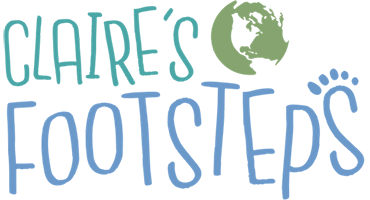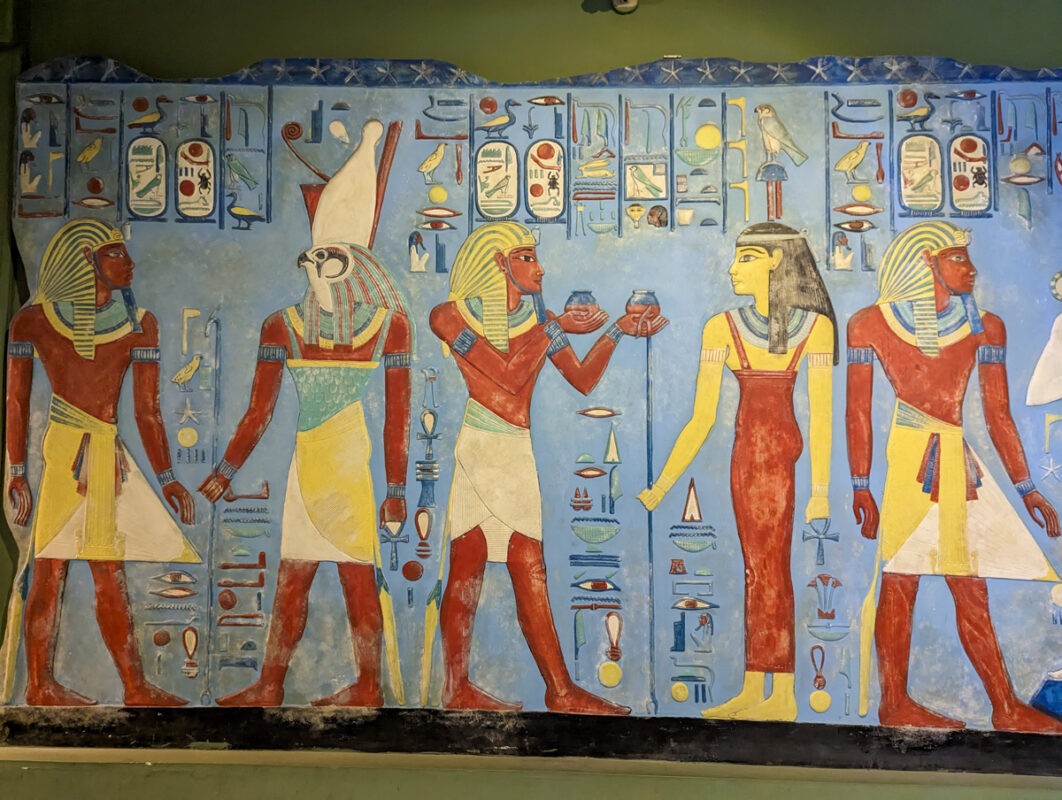Is Egypt safe? I’ve visited the North African country four times, and while I don’t think it’s unsafe, there are a few things to be mindful of when planning a trip here.
In all honesty, there are a few important things to consider while planning a trip to Egypt, but I would visit again (bearing all of these things in mind of course!).
However, I probably wouldn’t visit as a solo female traveller – not necessarily because I’d be worried about safety, but more because I’d struggle with the extra harassment.
Is Egypt safe?
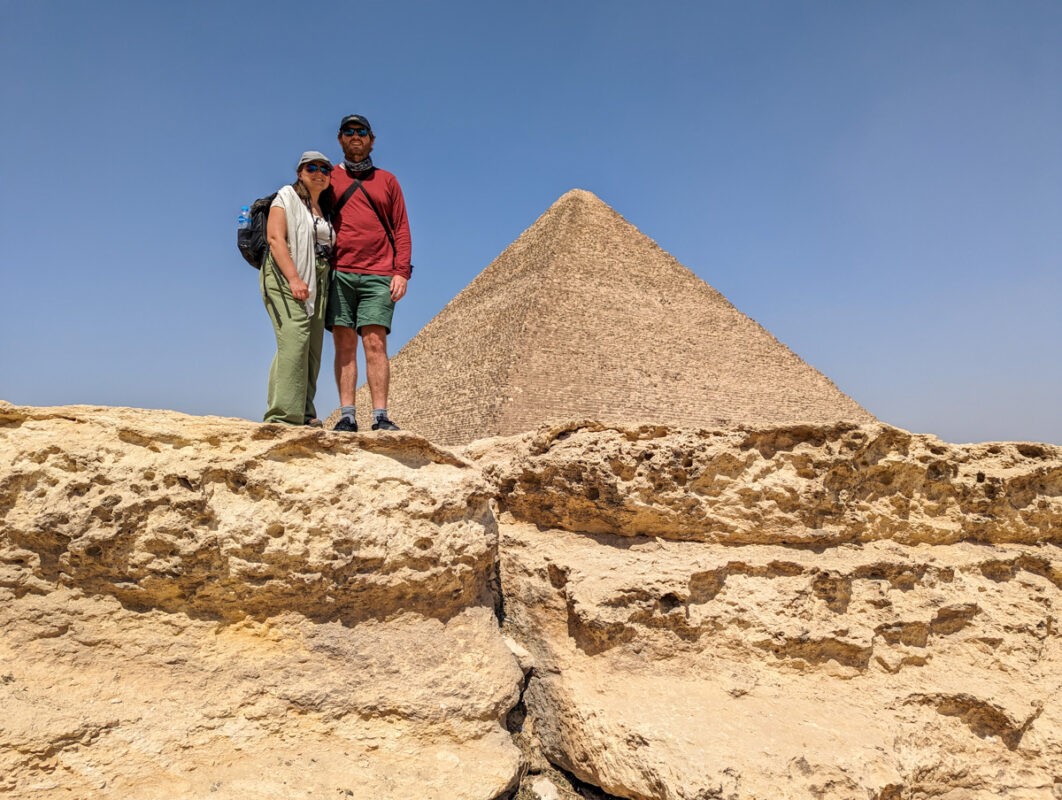
Egypt can be safe, but there are a few things to consider before visiting!
This report dubbed Egypt safer than the UK and US, but I do think it’s more nuanced than this. However, I also wouldn’t subscribe to a blanket thought that Egypt is “dangerous”. I’ll explain a little more in this article!
Crime in Egypt
The official crime rate in Egypt is comparable to the USA (both are higher than much of Europe). I didn’t personally experience or hear about any crime when I was there.
According to Gov.UK “visitors have reported armed robberies, muggings (including in taxis), sexual assaults, and break-ins to accommodation and cars” – but I do think it’s important to register that these can all happen in European and other countries as well.
Bribery and corruption in Egypt
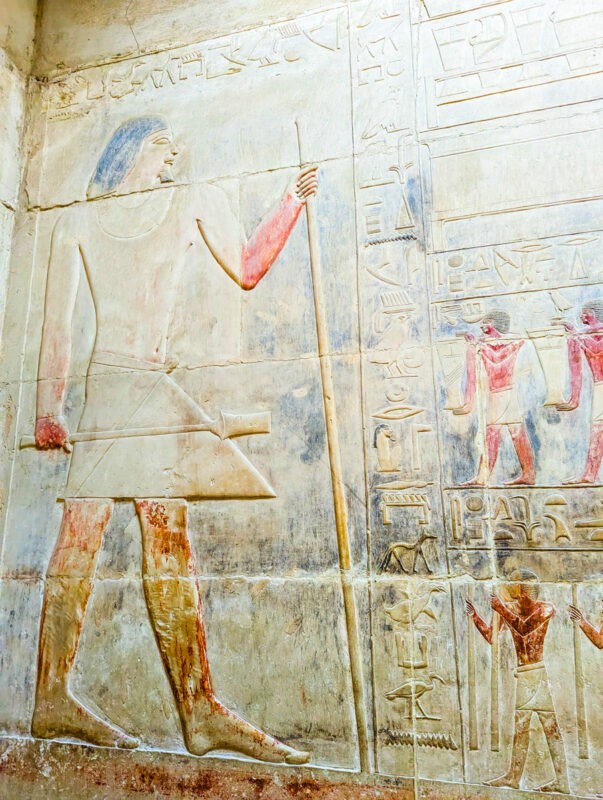
In my opinion, bribery and corruption in Egypt is more of a problem than your standard crimes.
Quite often, you’ll find people asking for a baksheesh (tip) for seemingly insignificant things, including showing you directions or offering advice. You might also find that rates for things like street food and taxis are abnormally high for tourists.
And according to this source, 25% of Egypt’s population considers the police to be corrupt, although it seems to have improved in the last ten years.
We experienced quite a bit of this in Egypt, and it’s difficult to assess what is tip-worthy and what isn’t. Sometimes, the situations can become quite uncomfortable, so we always tried to avoid getting in these situations when possible.
Scams in Egypt
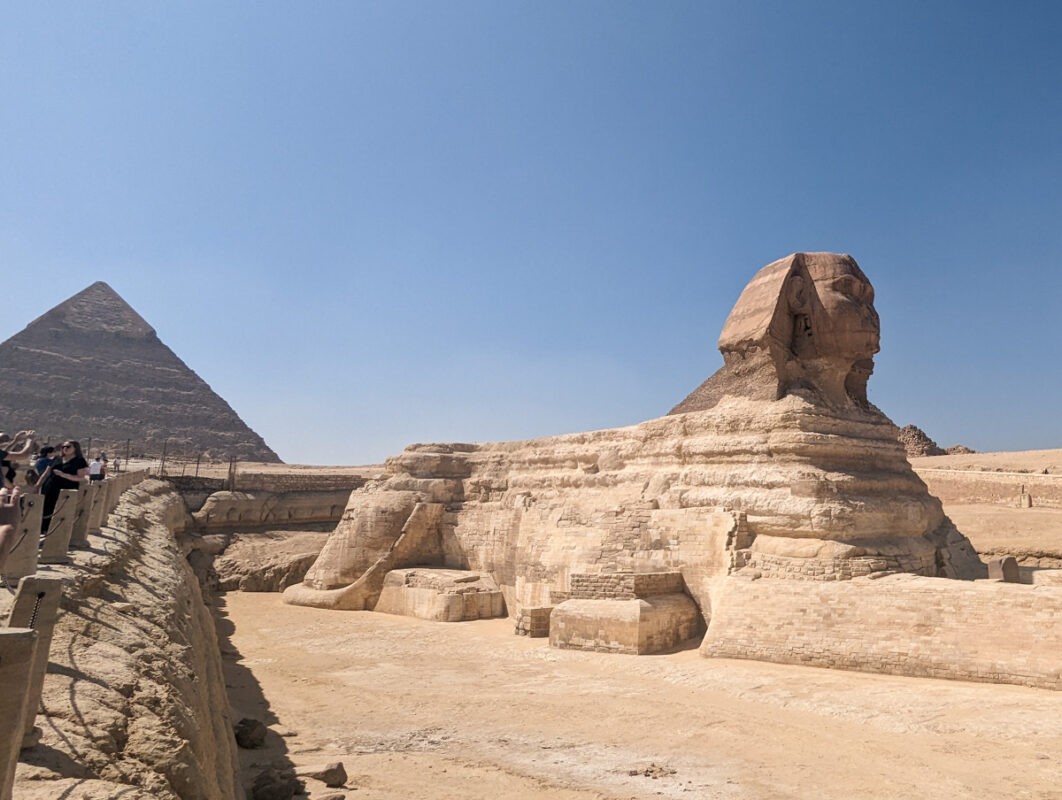
While some people asking for baksheesh do so because they’ve performed a service and there is a tipping culture, oftentimes the scale slips into scams. Some of the scams can include:
- Fake Entry Fees: Some might claim that certain public places or streets require an entry fee when they do not. Always check official sources or signage for accurate information.
- Camel Ride Scams: At the pyramids of Giza, operators offer a camel ride for a seemingly low price, then demand a much higher fee for dismounting or take you on a longer, unsolicited ride demanding extra payment. This is a well-known scam in Cairo, so I’d highly recommend avoiding camel rides at the pyramids of Giza.
- The “Closed” Attraction Trick: A local might inform you that a particular tourist attraction is closed for the day and then offer to guide you to another site or shop. In reality, the original attraction is open. It’s best to check for yourself.
- Taxi Overcharging: Some taxi drivers might not use the meter and instead quote inflated rates to tourists. Avoid this by using Uber where possible.
- Perfume or Papyrus Museum Scam: You might be invited to visit a “papyrus museum” where you’re pressured into buying fake papyrus at high prices. Remember that you can say no to this!
- Currency Exchange Scam: Be cautious when exchanging money. Some might try to take advantage of unfamiliar tourists with poor exchange rates or by shortchanging. We always took our money out of ATMs.
Poverty in Egypt
Of course, a big part of the reason that there are scams and a big tipping culture in Egypt is that poverty rates are high.
It’s a fine line to tread; while it’s always a good idea to avoid being scammed, it’s also important to be sensitive of the fact that many people are just trying to get by.
Road safety in Egypt
Egypt’s road safety is a little hair-raising, to say the least! I wouldn’t recommend self-driving – local drivers know the roads better – and try to avoid getting in a car with any driver who you feel doesn’t drive safety (of course, this can’t always be avoided).
Solo Female Travellers in Egypt
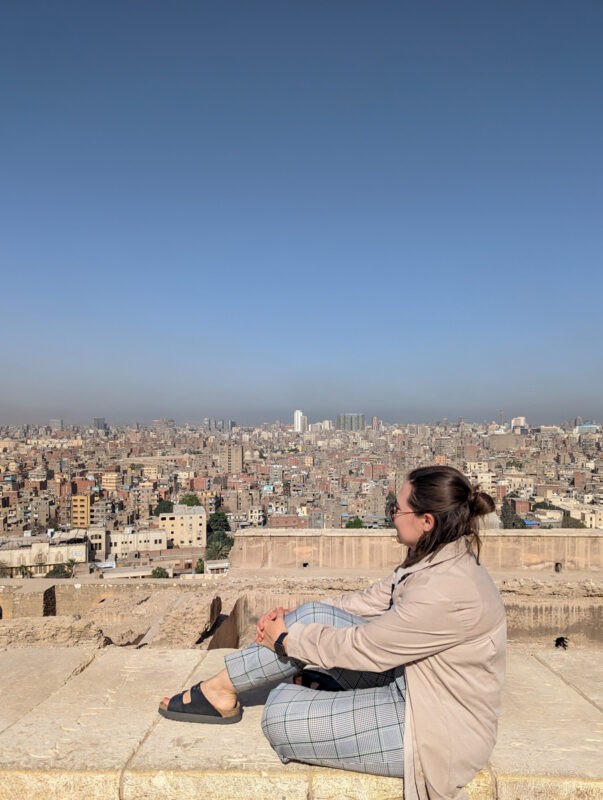
I’ve not actually travelled to Egypt on my own, and in the space of a short period when I was on our hotel rooftop alone I was approached and asked a lot of inappropriate questions by a male worker.
I’ve also heard quite a few stories about solo female travellers in Egypt who’ve experienced harassment and unwanted attention.
Bearing all this in mind, I wouldn’t travel solo in Egypt; but this is largely because I have a lot of other places on my list and I’ve already been to Egypt!
However, if it was somewhere high on my bucket list and my only option was to travel solo, I probably would, and do these things:
- stay in a secure, large hotel
- use a travel guide to see tourist sites
- avoid walking around at night alone
- not engage in conversation with people who approached me
Terrorism in Egypt
Terrorist attacks do happen in Egypt, but they rarely affect tourists – often, they happen in areas that are rated “don’t go”.
Gov.UK rates swathes of Egypt as “avoid all travel” and “avoid all but essential travel”, but these are largely out of the tourist zones.
However, some do affect areas like Cairo or tourist areas on the Sinai peninsula, including:
- 2022: Attack west of the Suez Canal targeted security forces in Ismailiyah, resulting in casualties.
- 2019: Car bomb in Cairo’s Manial district killed 20 people.
- 2019: IED explosion near the Giza pyramids injured 16 tourists on a bus.
- 2019: Suicide bomber in Cairo’s Darb al-Ahmar district killed three security personnel.
- 2018: Roadside bomb near the Giza pyramids killed four people on a bus.
- 2018: Gunmen attacked a bus carrying Coptic Christians in Minya, killing seven; Daesh claimed responsibility.
Is Egypt affected by the situation in Gaza?
Yes, Egypt is affected by the situation in Gaza, but out of the border areas, it’s not that evident.
The area of the Sinai Peninsula, around Rafah, is rated “do not travel”, and it’s not somewhere tourists would typically visit.
Egypt is having economic issues, which tourists may encounter while they’re in the country as well.
If you’re visiting this time, I’d highly recommend staying up to date with travel advisories for your country. This is the Gov.uk advice for Egypt.
Food and water hygiene in Egypt
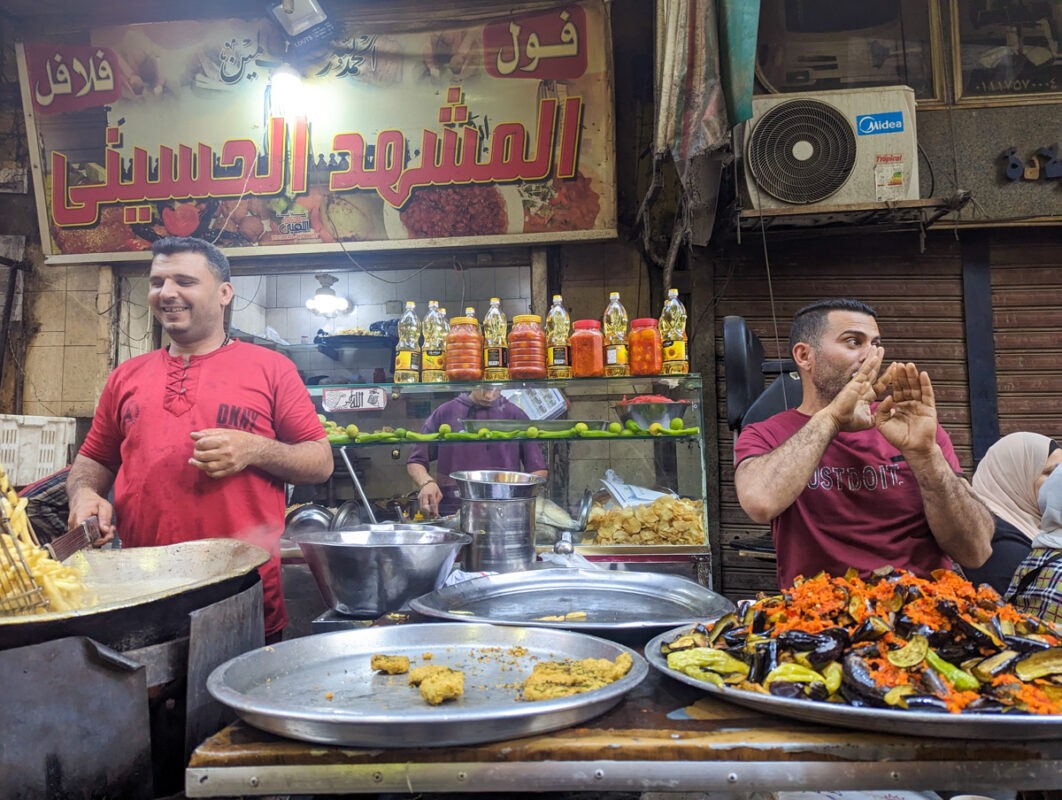
Pharoh’s revenge is common in Europe; traveller’s diarrhoea due to unsanitary food or water.
Don’t drink the tap water; either drink bottled or use a filtered bottle like a water-to-go.
I eat street food, and I found my stomach to be ok when I was there – but I’d recommend avoiding salad, being careful with meat, and making sure everything is cooked in front of you.
Vaccinations for Egypt
Some vaccinations are advised for Egypt, although plenty of tourists visit the country without them. Check out Fit For Travel vaccinations here – they recommend poliomyelitis and tetanus but I’ve also seen hepatitis A and typhoid be recommended. It’s best to speak to your doctor or travel nurs about what you need.
Health in Egypt
Private hospitals in Cairo are generally high quality, with English-speaking staff. I’d recommend visiting these if you have any issues. The As-Salam International Hospital is highly rated.
You’ll find varying hotels in other cities; largely, the bigger the city the more international hospitals there will be.
English in Egypt
Many people in Egypt speak good English; I’d recommend speaking to trustworthy locals (including tour guides or receptionists at reputable hotels) as much as possible to gage the safety and chance of scams.
Diving safety in Egypt
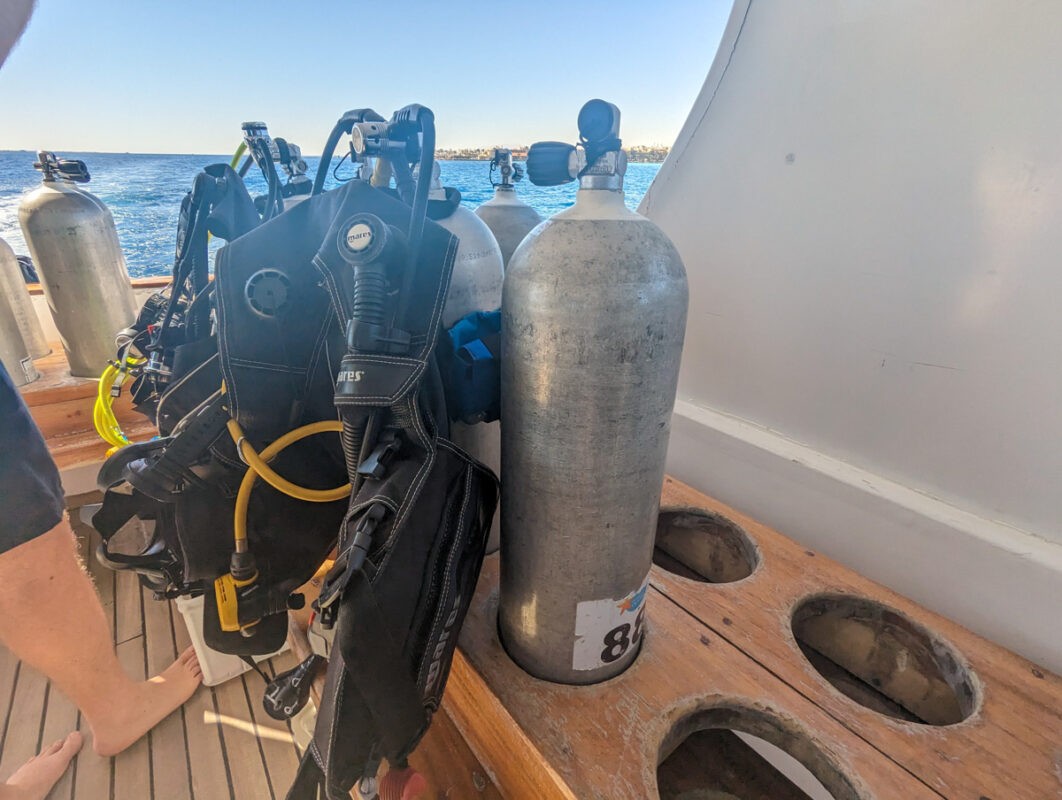
Diving is one of the most popular activities in Egypt, and while it’s generally safe (Red Sea resorts get a lot of tourists, so safety measures are typically high), there is the occasional incident.
My advice is to go with a very reputable diving school – we went with Diving Star Hurghada and they were probably the best dive school we’ve ever used.
Shark attacks are rare, but do happen in the Red Sea. They’re usually provoked, so it goes without saying to avoid swimming close to a shark and definitely not to touch one.
General safety tips for Egypt
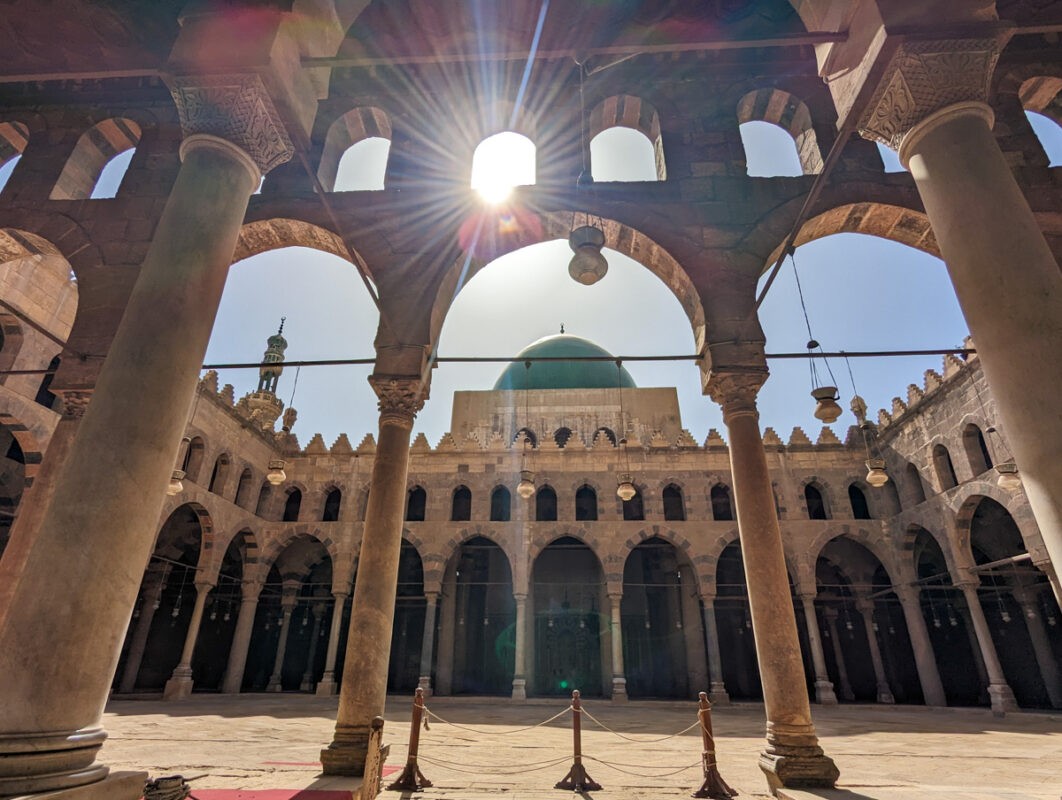
Here are some Egypt travel tips for safety.
Be Wise on Scams
Stay alert to common tricks, such as overly friendly locals offering unsolicited help or deals that seem too good to be true.
Familiarise yourself with typical scams, like the fake entry fee or the “closed” attraction ruse to navigate your visit with confidence.
Stay in Larger Hotels
Opting for well-known, larger hotels can enhance your security and comfort.
These establishments often offer reliable information, assistance with arranging tours and are equipped with better security measures.
Take Advice from Reputable People
Seek guidance from credible sources such as official tourist information centres, hotel concierge services, or established local contacts.
They can offer valuable insights and recommendations for a safe and enjoyable visit.
Use Uber Rather Than Taxis
To avoid the common overcharging by taxis, consider using ride-sharing apps like Uber.
These services provide fare transparency, route tracking, and the convenience of cashless payment, ensuring a safer and more predictable journey.
Book Tours on Get Your Guide
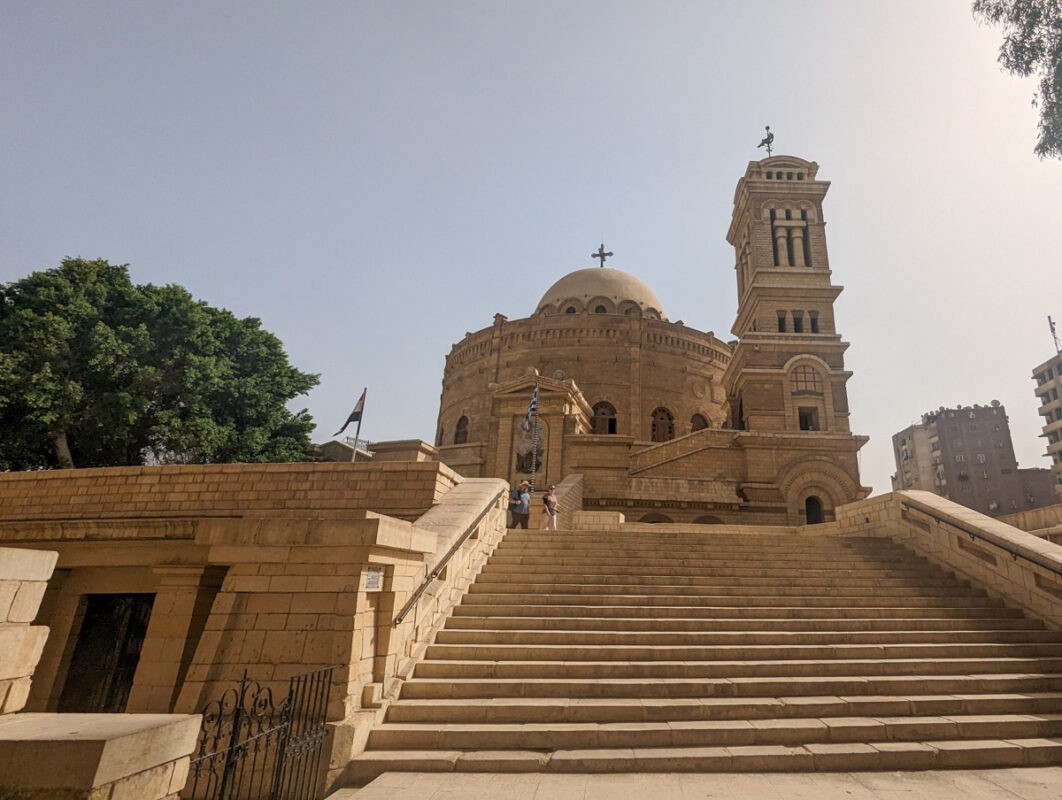
I’d recommend booking through reputable platforms like Get Your Guide.
These sites offer vetted tours with clear pricing, user reviews, and flexible cancellation policies, ensuring quality experiences.
Take a guided tour around Egypt
Personally, I’d travel around Egypt independently (with my partner), but many people recommend touring only on a guided tour. Egypt tour packages can be quite affordable and they guarantee that you travel with a guide on a fixed itinerary, maximising your safety.
Stay Informed on Local Developments
Keep abreast of current events and travel advisories relevant to your destination.
This knowledge can help you avoid areas of unrest or potential hazards, ensuring your travel plans remain safe and enjoyable.
Wear Appropriate Clothing
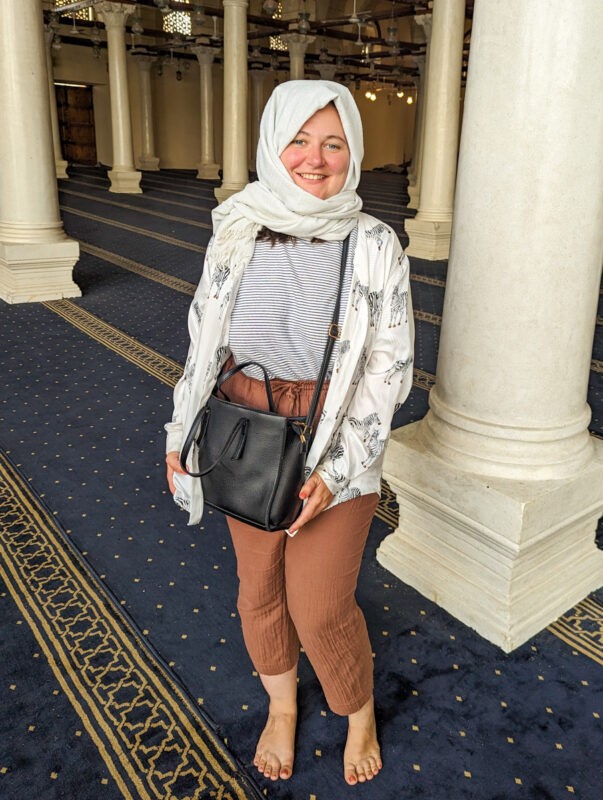
Respecting local customs and dressing appropriately is vital, especially in culturally sensitive locations.
Adhering to dress codes not only shows respect but can also prevent unwanted attention, making your visit more comfortable.
Emergency Contact Information
Have a list of emergency contacts, including local emergency services, the nearest embassy or consulate, and emergency numbers for any personal services like banks or insurance.
Keeping these handy can expedite assistance when needed.
Maintain Connections
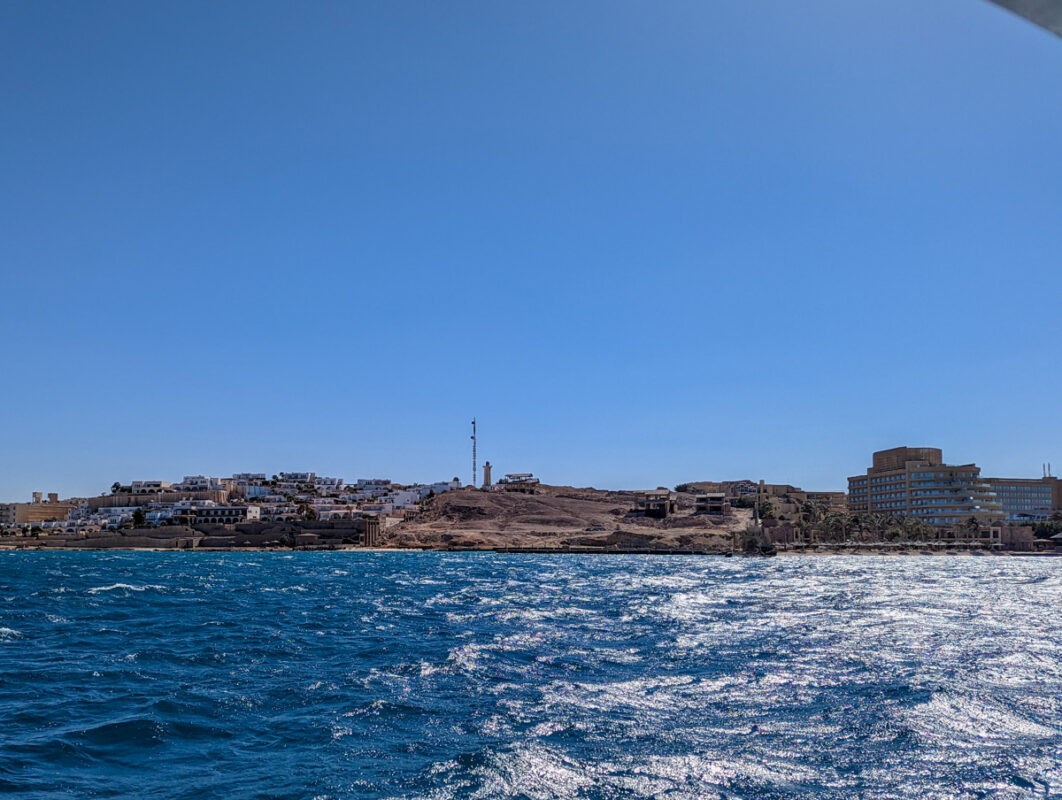
Regularly check in with family or friends back home, sharing your itinerary and any changes to your plans.
This practice ensures someone always knows your whereabouts, providing an additional safety net during your travels
Egypt travel safety
With some forward planning, you can visit Egypt safely.
Want to see more of Africa? Take a look at my other safety posts.
